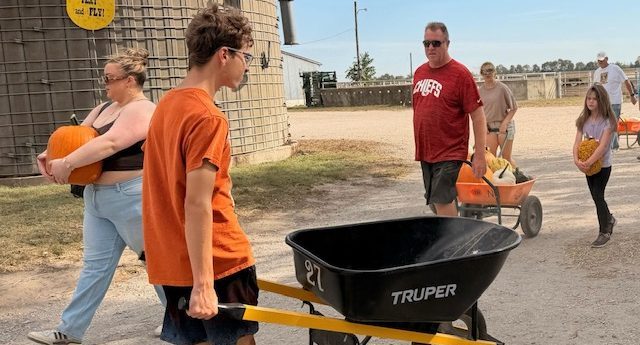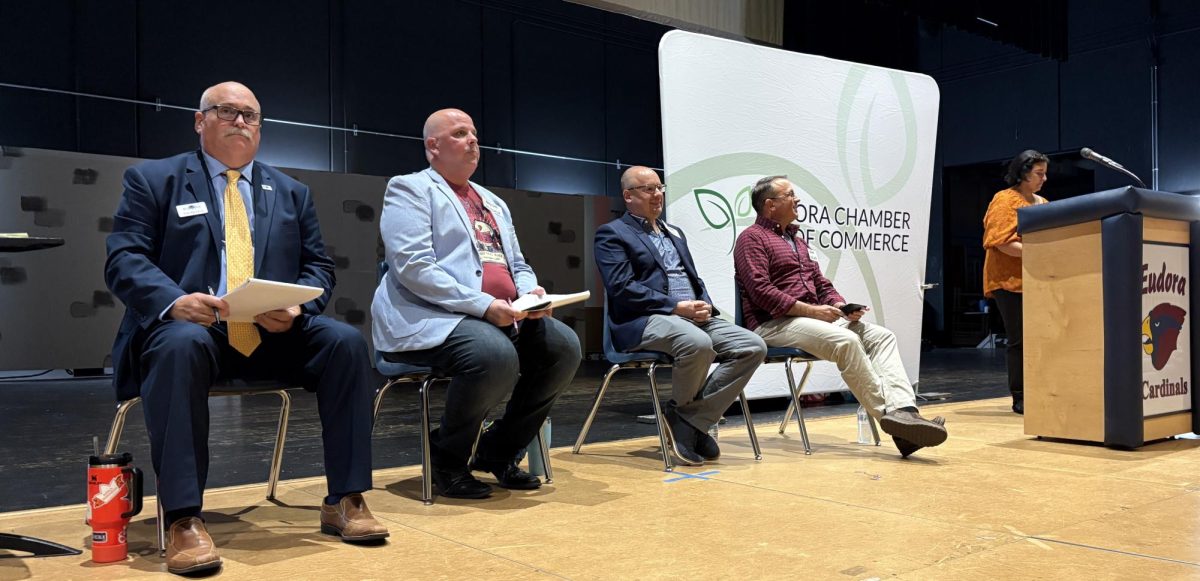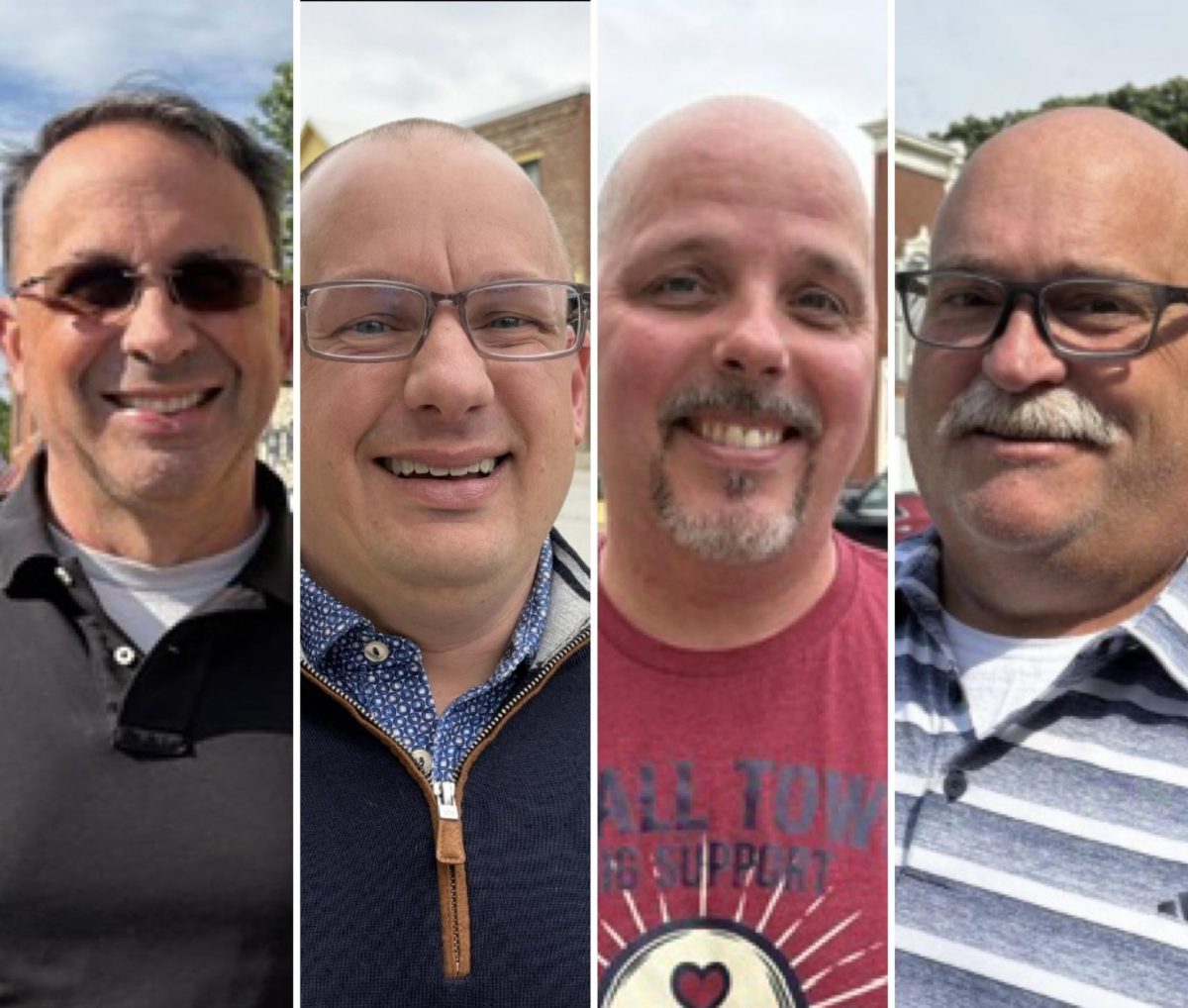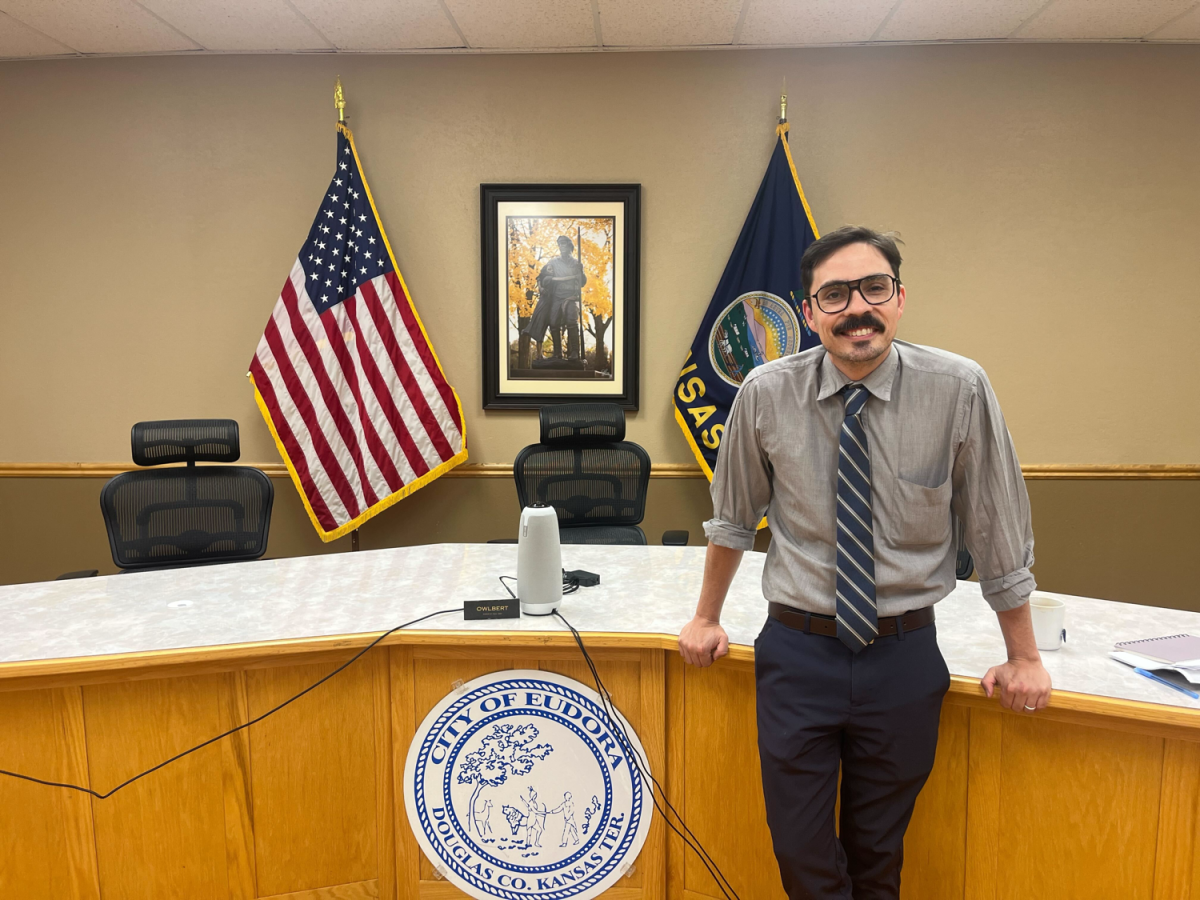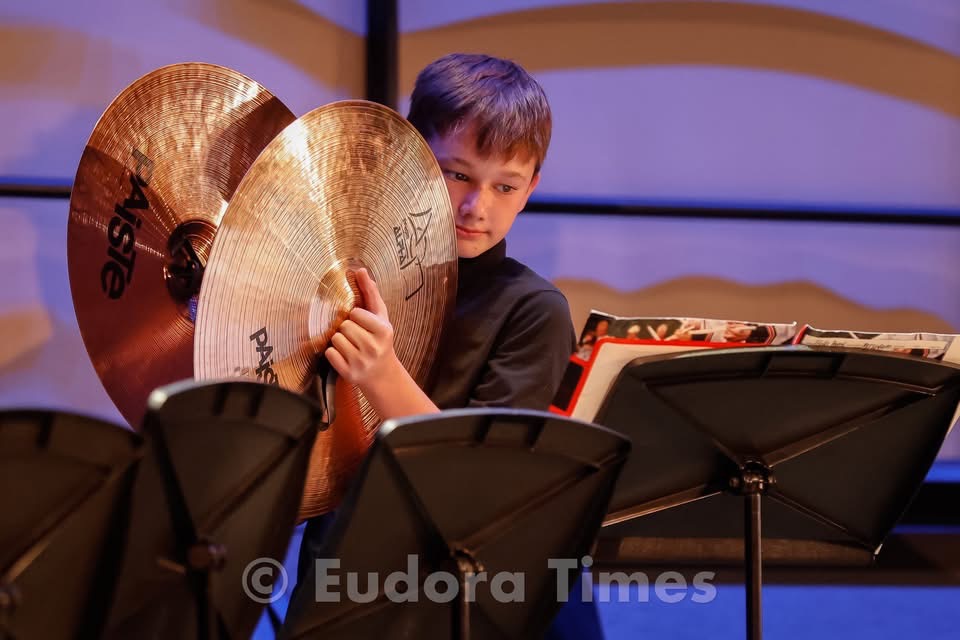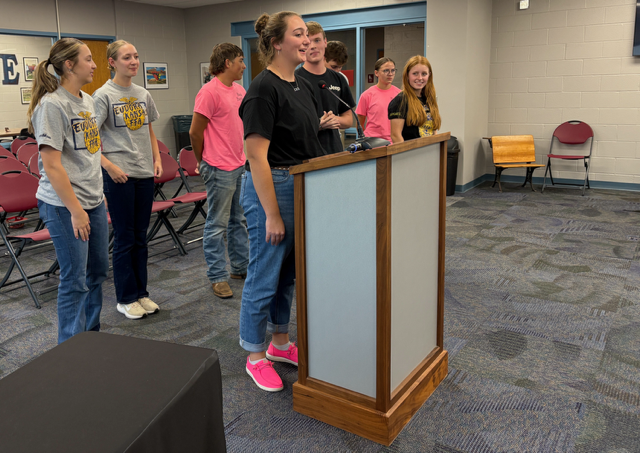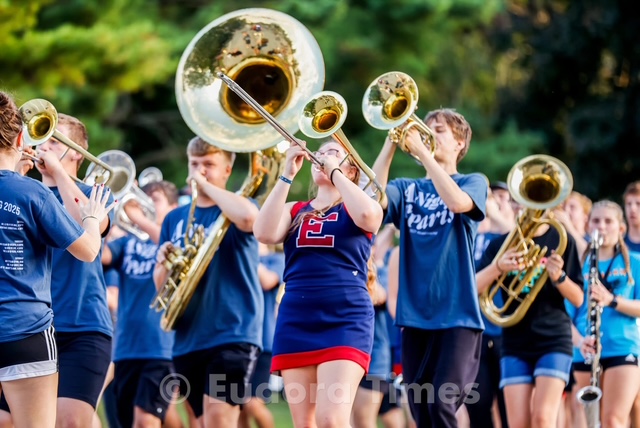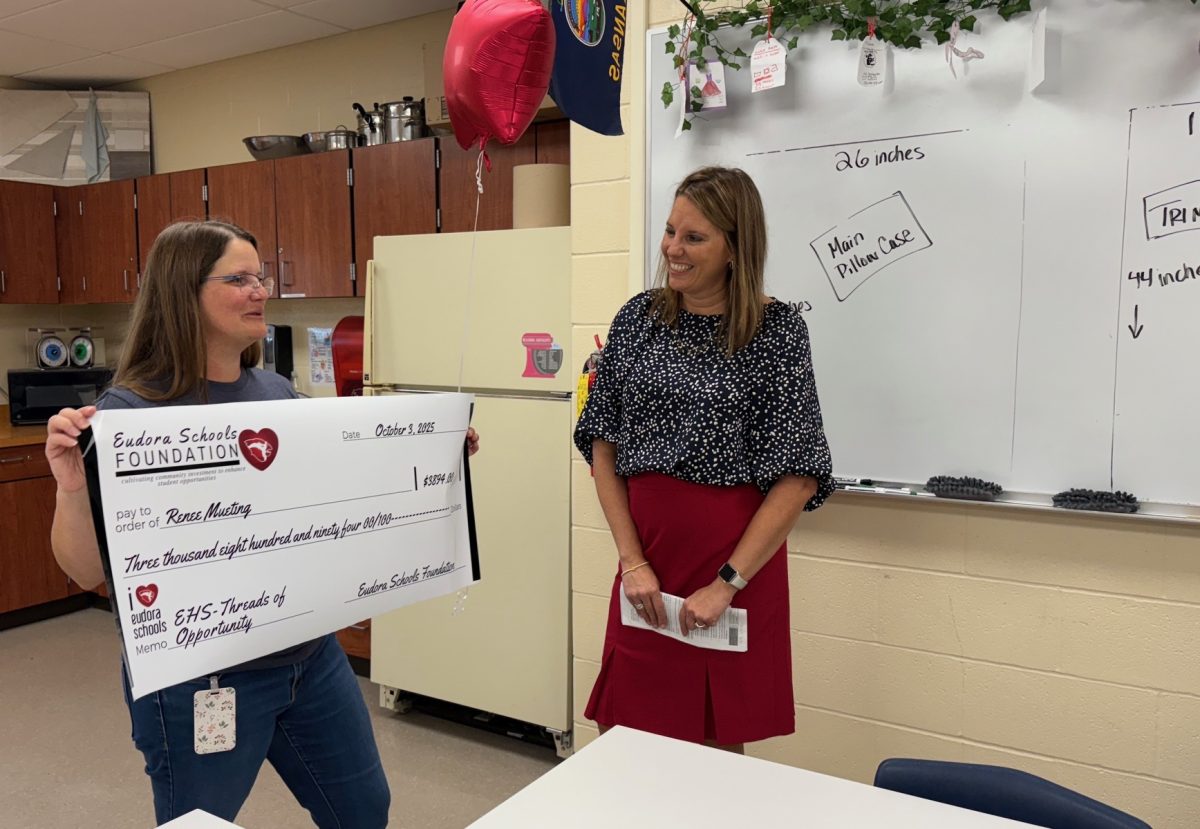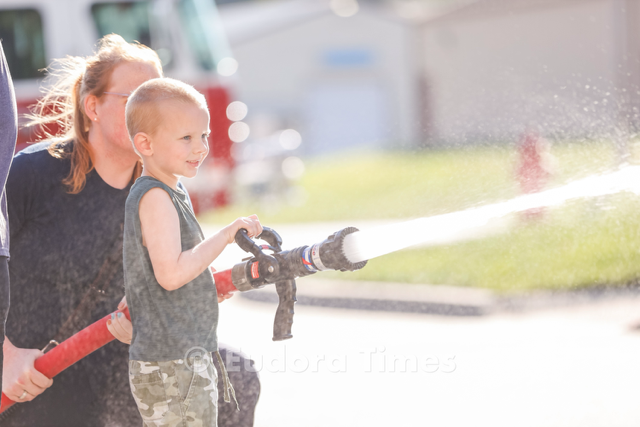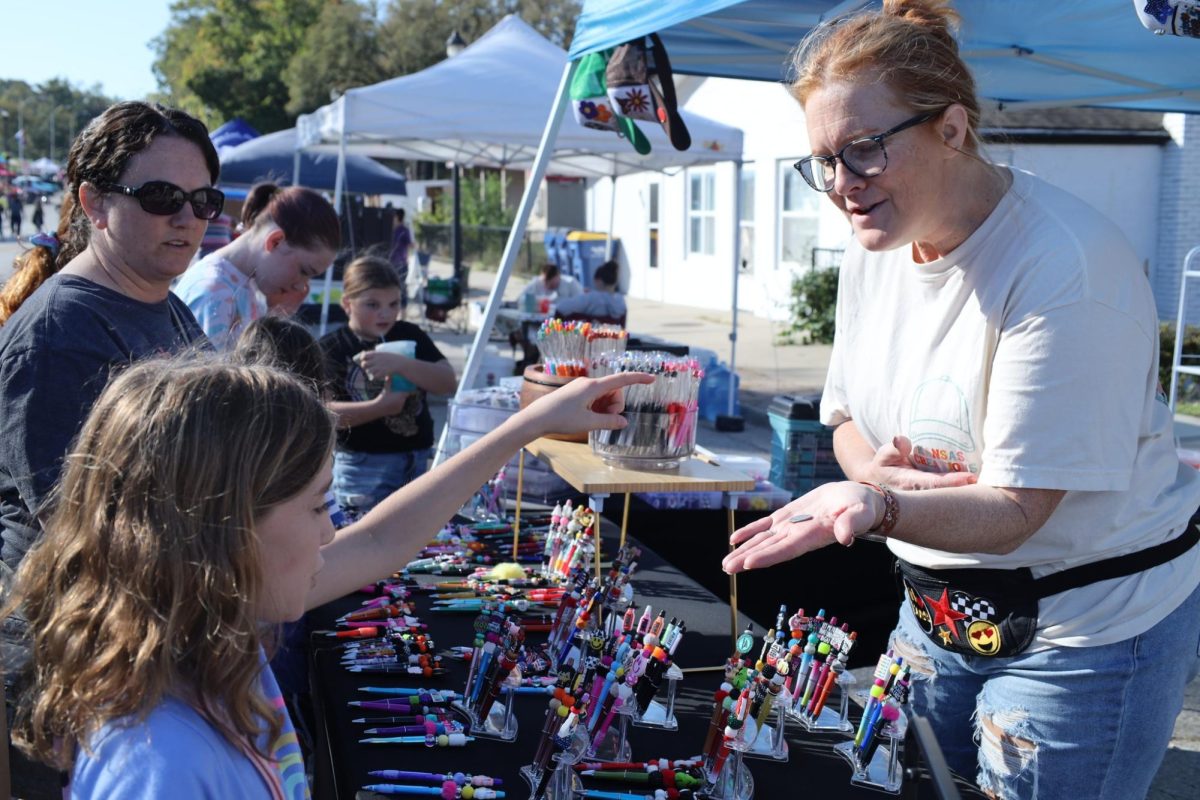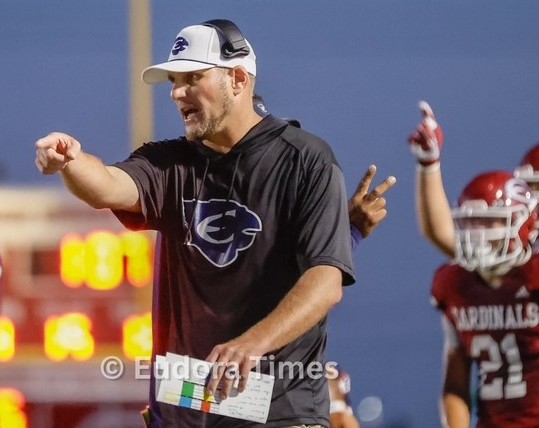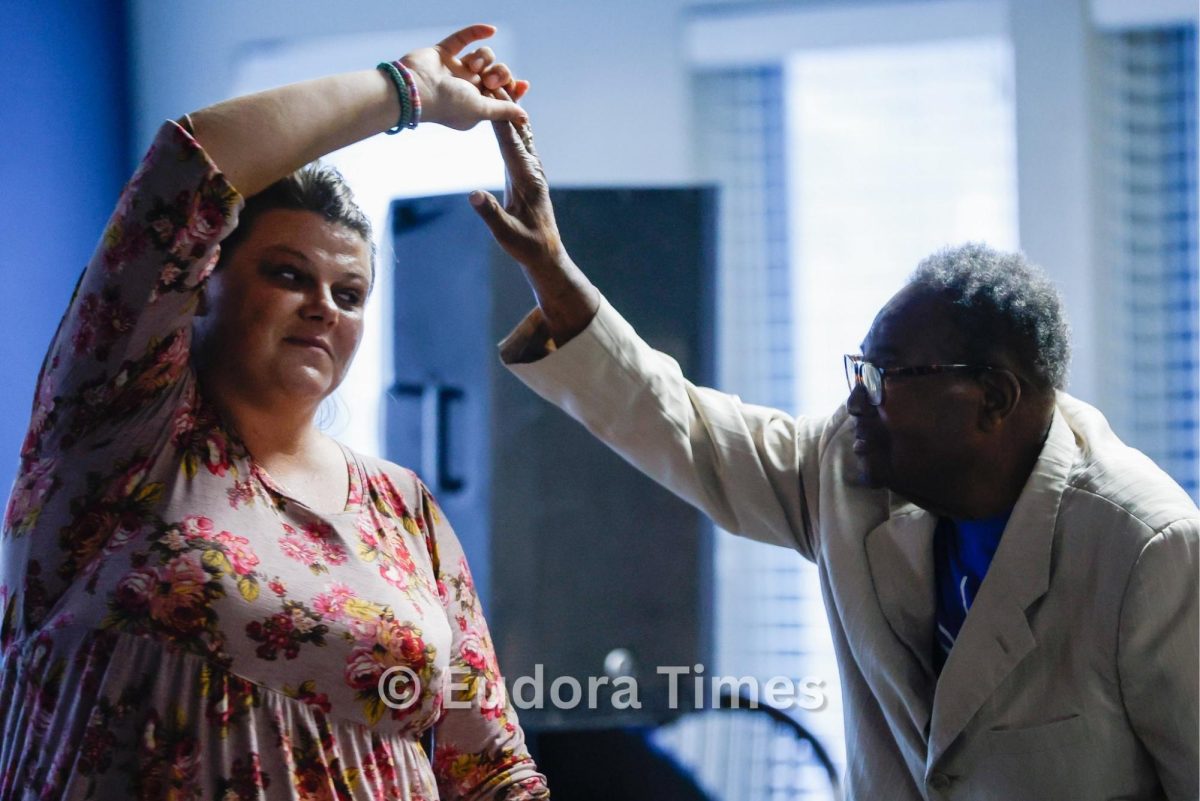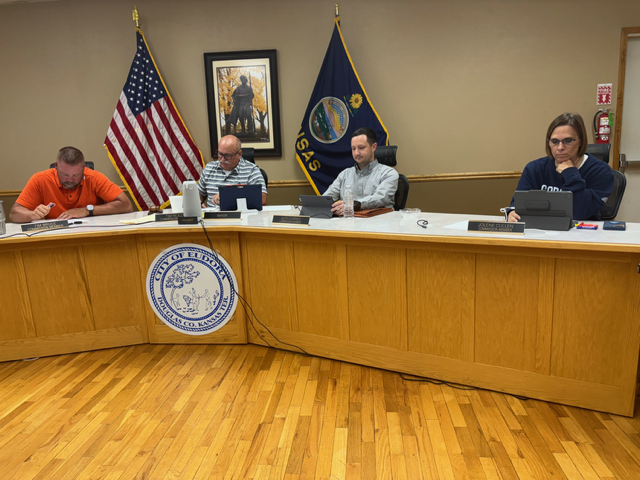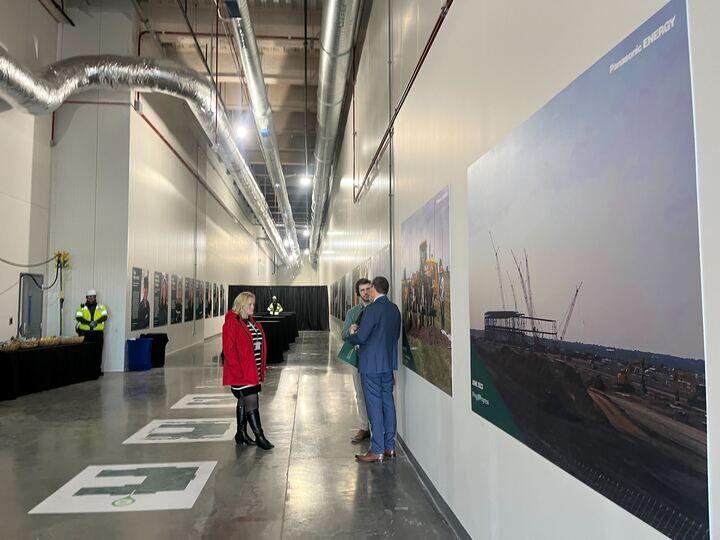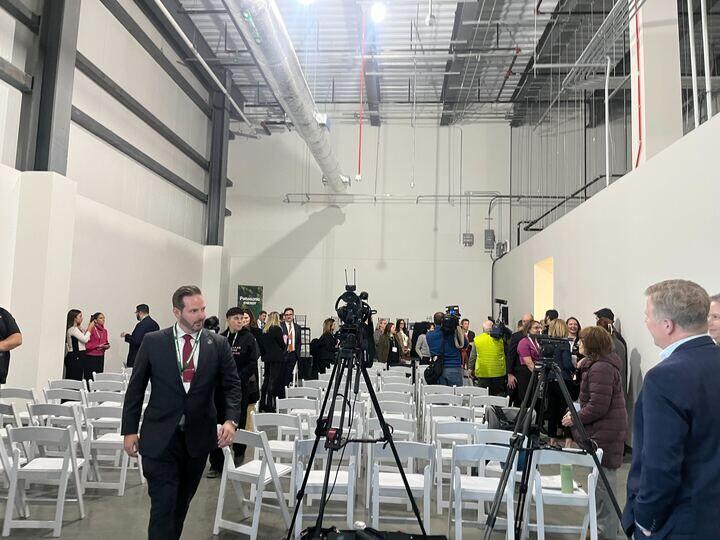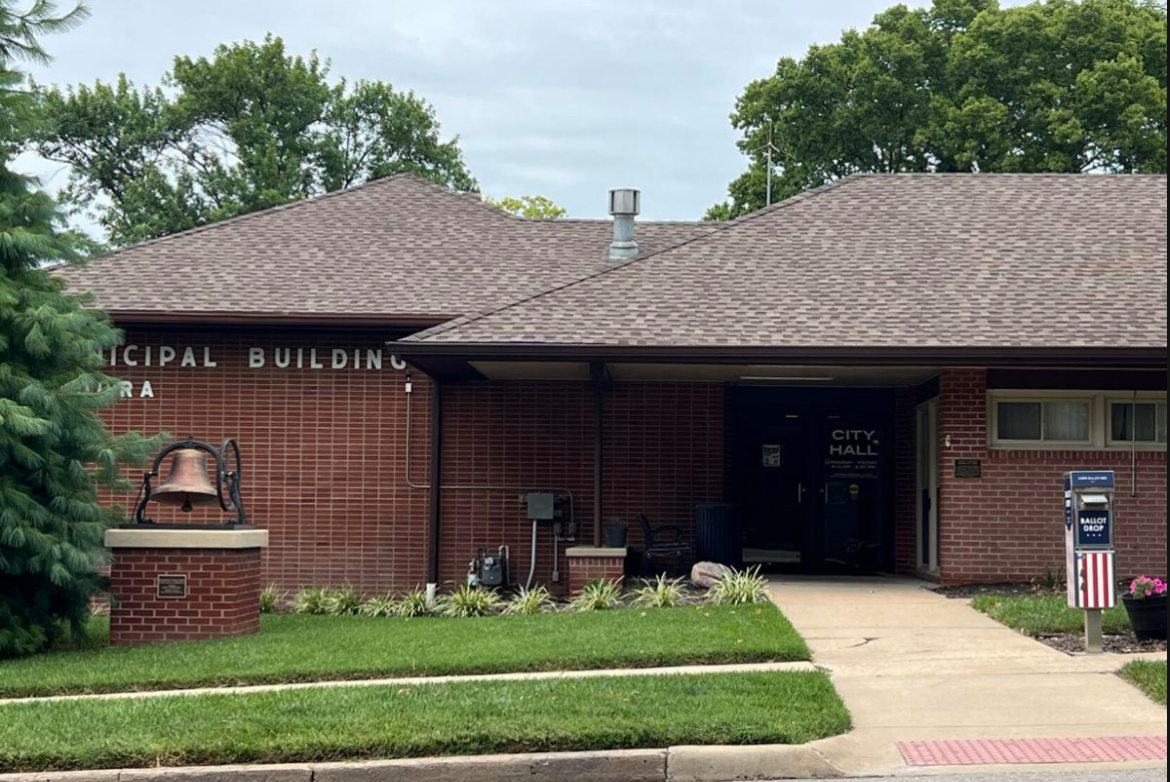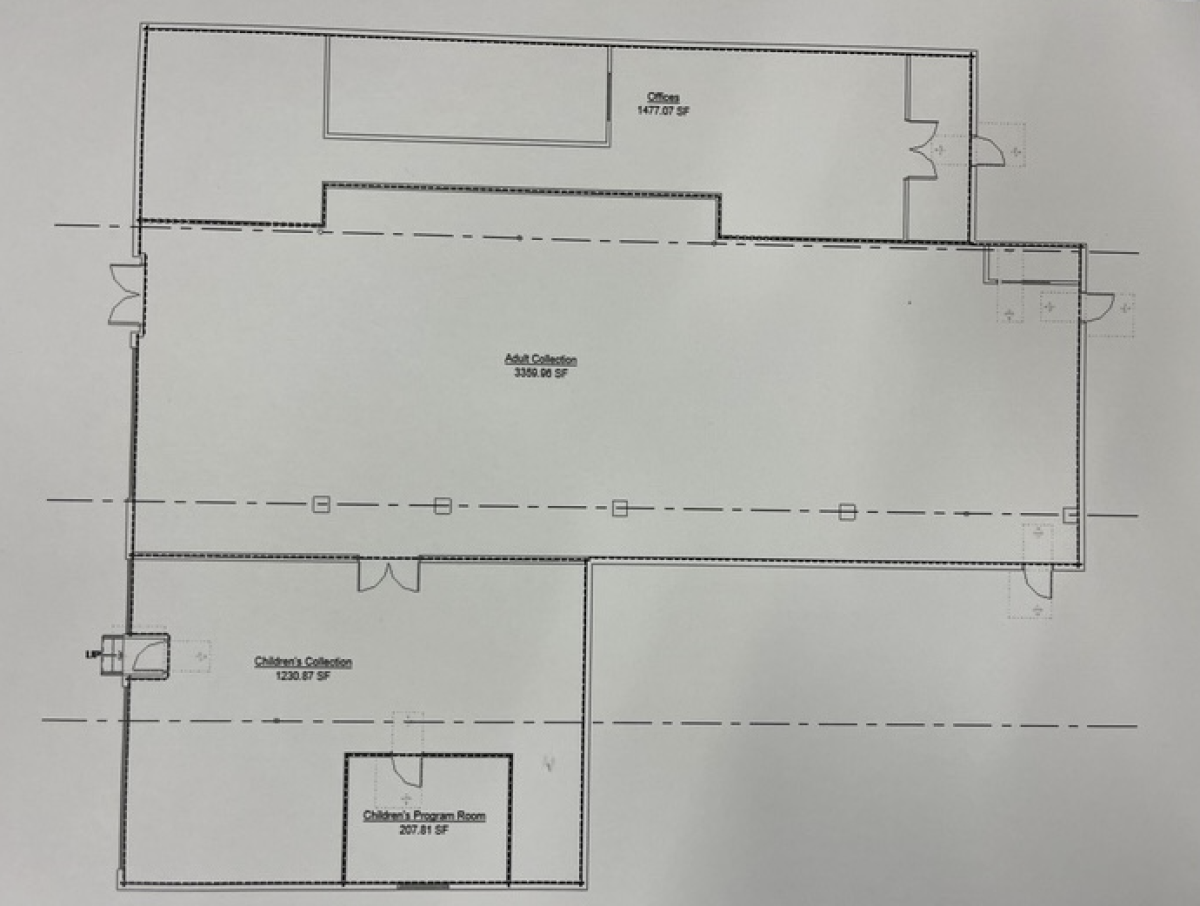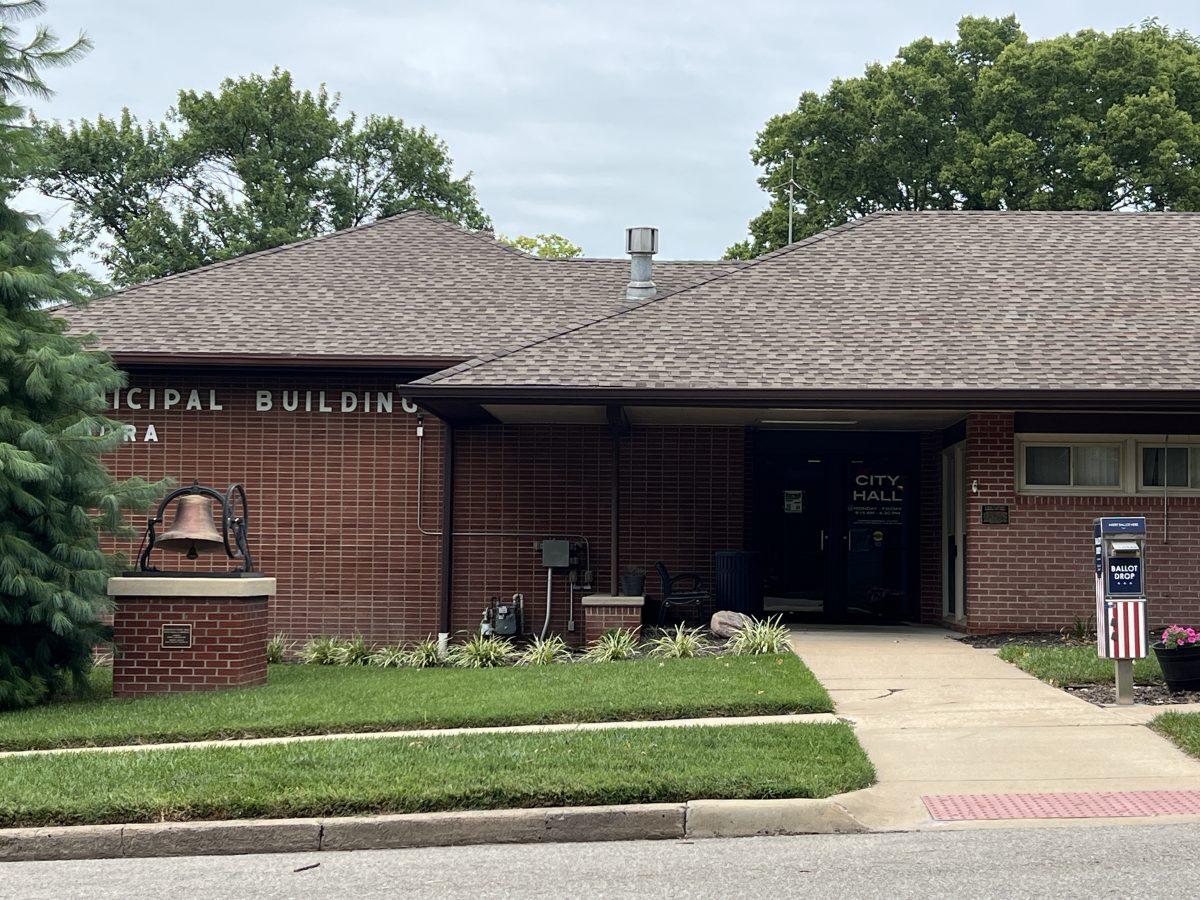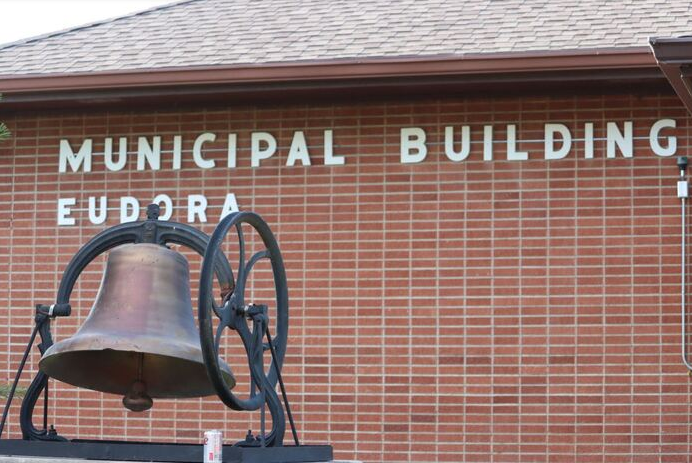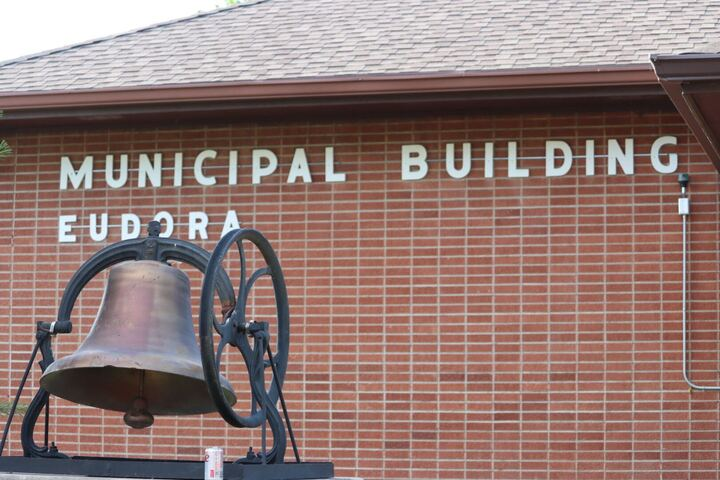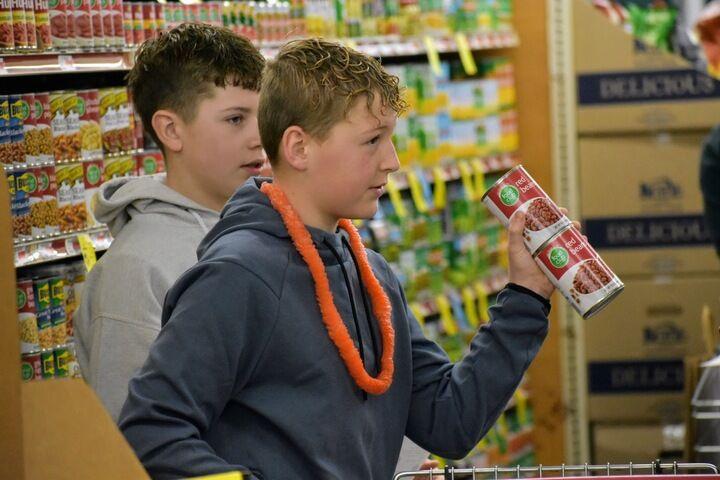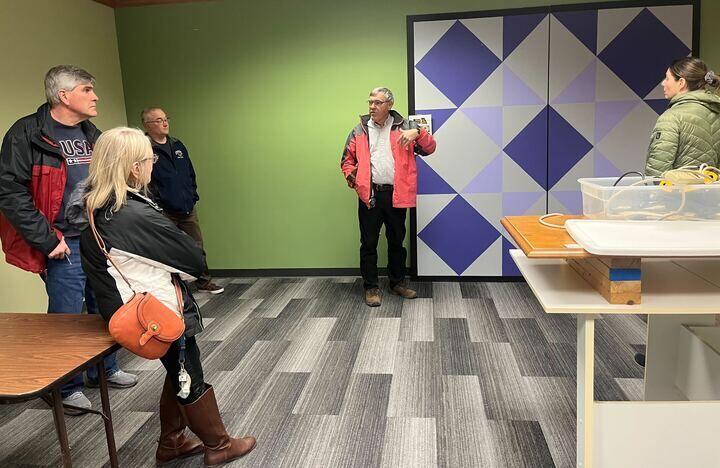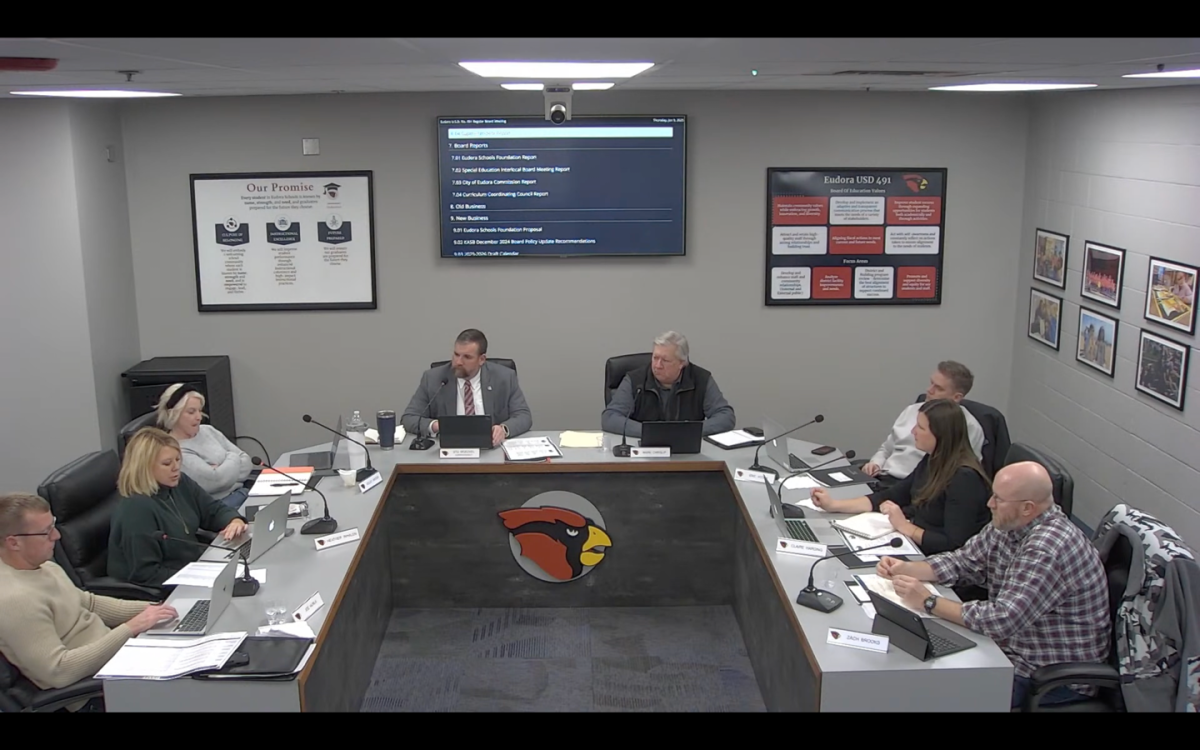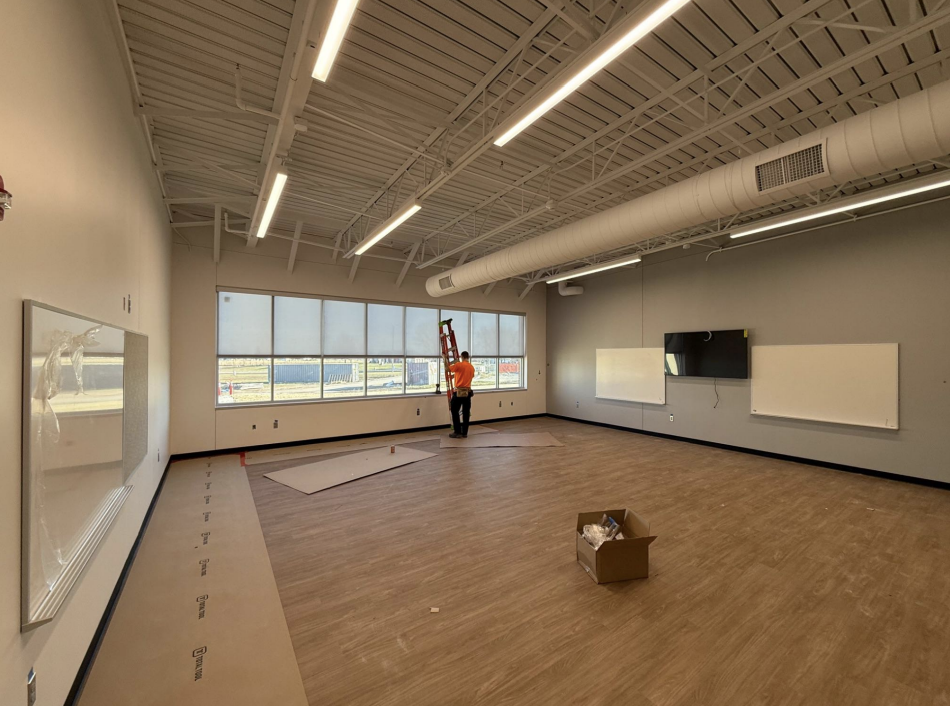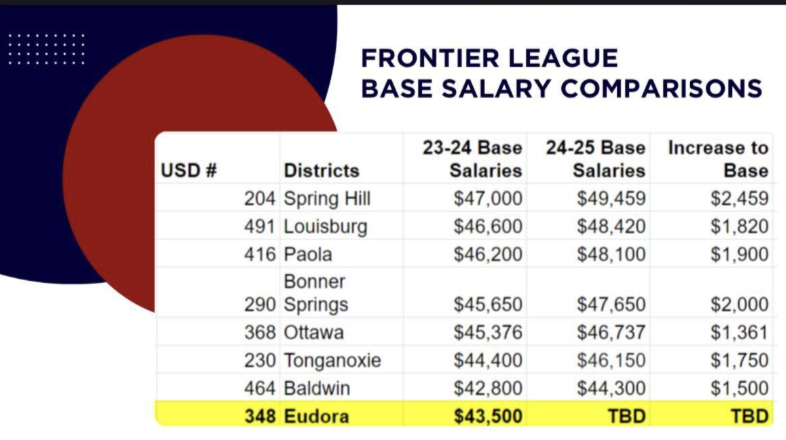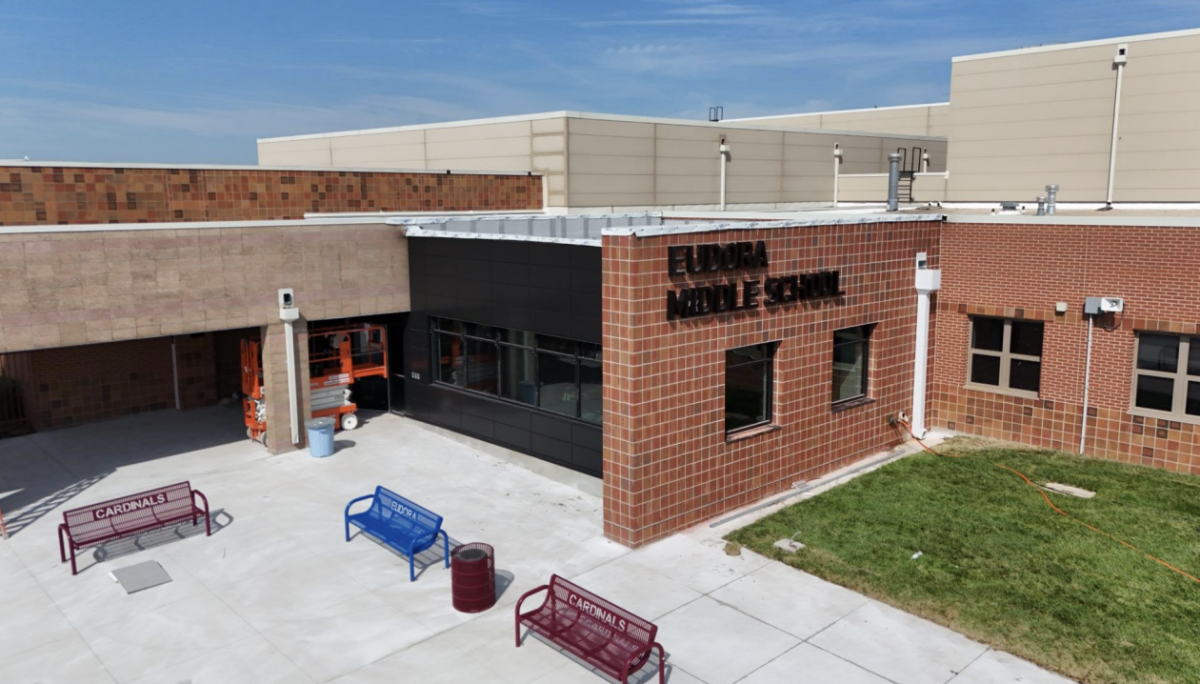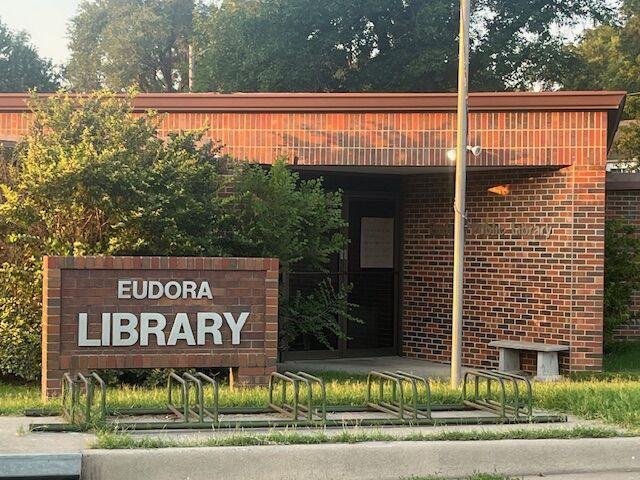Panasonic expects to have 1,000 employees on site by summer as the plant inches closer to beginning production of electric vehicle batteries.
State and local leaders hosted a celebration Friday at the construction site as the $4 billion plant nears its official launch. The Eudora Times and other media were only permitted in a gathering area at the front entrance of the De Soto plant and were not allowed to view the inside of the production facility.
Panasonic has previously said it aimed to start its battery production by March, a timeline also referenced by Gov. Laura Kelly on Friday.
In a brief interview with The Times, Panasonic North America President Allan Swan said safety would determine when production would start. He said there wasn’t an exact date to share at this time and that announcement would come later.
Friday’s event came three years to the date that Lt. Gov. David Toland led a delegation of six Kansas leaders to Reno, home of another Panasonic battery plant, to first acquaint themselves with a battery facility.
Swan said the groundbreaking for the De Soto plant 27 months ago has now resulted in a “beautiful” facility that isn’t just about the factory but a commitment to growing the economy and creating high-quality jobs.
Over 400 employees have since been hired, and Panasonic remains committed to reaching the 4,000 it promised, he said. To date, 3,800 construction workers have been involved with the project, he said.
Swan praised the collaboration from the federal, state and local governments that made the plant possible, as well as partnerships with the University of Kansas and area community colleges.
“Every day, I am reminded that we made the right choice by picking Kansas. Absolutely,” he said.
There are employees training today at the Reno plant to build their skills in battery manufacturing while others are in apprenticeship programs at local community colleges, said Kristen Walters, vice president of human resources for Panasonic North America.
There are now another 400 jobs open as the plant gets ready to start up its first production line, she said. These positions include production team members, as well as leadership opportunities in human resources, supply chain and operations.
Walters expects the plant to reach 2,000 employees by early next year as more production lines start up.
De Soto Mayor Rick Walker said he grew up a few miles from the Panasonic site. When the lights went out at the former Sunflower Ammunition plant, he said the lost jobs created a heavy sense of uncertainty. The site was left in a state of limbo with a shadow of doubt and speculation of what it would become.
“Well, today, we have our answer. The lights are back on. The jobs are here, and De Soto is once again a place of innovation and progress,” Walker said. “The economic ripple effects that are already reaching our community are amazing.”
This moment of Panasonic’s near opening is about more than the plant, he said.
“It’s about resilience. It’s about transformation, and it’s about the future that we’re building together,” Walker said.
Legislative leaders spoke about the large task in front of them three years ago to come together in a bipartisan fashion and agree to a historic economic development incentives package when the majority didn’t know what company was involved.
The nearly $830 million in state incentives include investment tax credits, payroll rebates, training and education, relocation investment and sales tax exemption, according to the state Commerce Department.
Kelly emphasized Friday the state learned from failed economic development projects in other places and knew it needed to ensure Panasonic delivers on its promises before the incentives are granted.
“It’s not money up front,” she said.
Speaker of the House Dan Hawkins said Panasonic has since been a spark for other companies to take an interest in Kansas. Senate President Ty Masterson said Panasonic has fulfilled its part of the deal and illustrates what can be done when political leaders work together.
Toland said it’s “extraordinary” that the largest electric vehicle battery plant in the world is now in De Soto. Five years ago, Kansas struggled to get meetings in Japan with companies and now has all of its invitations accepted, he said.
“What this facility represents is a paradigm shift in how Kansans see Kansas,” Toland said. “This is a source of pride not just for all of us in this room but now for Kansans all across our state. This is something that we can point to that is a unique accomplishment for a Midwestern state to land something that’s this big.”
Toland said De Soto was one of 82 sites around the nation that wanted the plant.
“And we won. And the reason we won is because we worked together,” he said.
Kelly also praised the plant as a milestone, calling it a “transformative chapter in Kansas history” that sets the foundation for long-term partnerships that will benefit the state for decades. With the thousands of new jobs, the plant will generate $500 million in new annual labor income, she said.
Panasonic is also generating secondary growth in housing, local businesses and educational advancements, as well as $26 million in state transportation improvements, she said. With 66 batteries produced per second, the plant will power 500,000 electric vehicles annually, she said.
In a media briefing after the event, Kelly said the state knows the plant and related development will impact traffic on K-10.
“We’re fully aware of that. We know that we’re essentially going to have a crowded corridor from Lawrence all the way over to Kansas City, and we are planning accordingly,” she said.
During the event, Rep. Sharice Davids, D-Kansas, said the bipartisan nature of the partnership to secure Panasonic created “truly something special” for the state. Workforce preparation, child care needs and infrastructure investments are ongoing issues to benefit future generations of Kansans, she said.
“This is the beginning of this long journey that we’re on together,” she said.
Reach us at [email protected].

